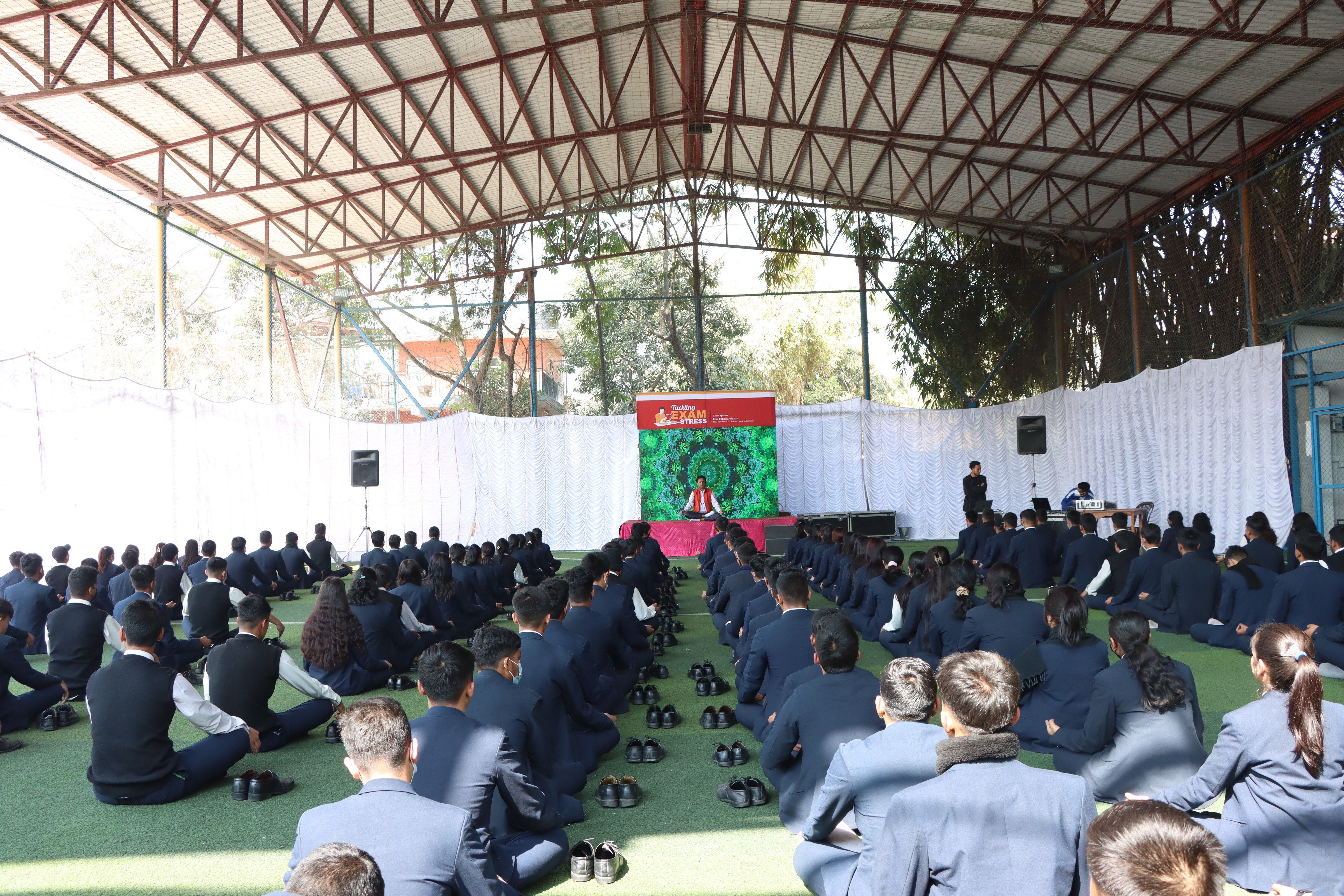
February 27, 2023
Trinity International College organized four days’ workshop on “Tackling Exam Stress” considering the upcoming exam of +2 & A Level. The workshop was facilitated by Guest speaker Mr. Giri Bahadur Sunar, Ph.D. scholar at Tribhuvan University, a researcher, columnist, motivational speaker/stress-reducing coach, and the pioneer of women's empowerment self-defense training in Nepal.
The guest speaker, Mr. Sunar, said some stress levels could be a natural and helpful part of life. Stress can help students stay alert and motivated and can be a necessary part of growth and progress. However, distinguishing between healthy and chronic or excessive stress is essential. While a bit of stress can be beneficial, too much stress can harm our physical and mental health. Chronic stress can lead to various adverse outcomes, such as anxiety, depression, burnout, and physical health problems like high blood pressure and heart disease. Therefore, it's essential to learn how to tackle exam stress effectively and find ways to balance life's stressors.
Following things highlighted in the Workshop:
- Study Time: the best study time is early in the morning, and the evening is good for doing homework and making notes. One of the most significant sources of stress is feeling like there is insufficient time to prepare for the exam. Starting early and breaking down study materials into manageable chunks can help students feel more in control and less stressed.
- Study Schedule: a study schedule can help students stay organized and focused. Schedule breaks and time for self-care activities like exercise, meditation, group study, or spending time with friends.
- Study Techniques: everyone learns differently, so finding the best study techniques for students is good. Some effective techniques include creating flashcards, summarizing key concepts, or taking practice tests based on past exam papers..
- Physical Health: getting enough sleep (at least 8 hours), having a healthy diet (sattvic foods), and exercise regularly and taking break after a long hour of study can help reduce stress and improve students' ability to focus.
- Positive Thinking: negative self-talk can be a significant source of stress. Instead, concentrate on positive affirmations and remind self abilities can boost up the level of confidence.
- Meditation Practice: deep breathing, gradual muscular relaxation, and visualization are a few methods that can assist induce relaxation and reduce stress.
- Social Media: social media like TikTok consumes more and more time for students; engaging for more than two hours makes them tired and brain-drained and unable to focus on their studies, so students must avoid such social media addiction.
- Parental Support: Parents need to understand their children's psychological situation during exams and need to cope with them, but most of the parents were found transferring their personal stress and their unfulfilled ambition and desire to their children and expecting higher grades, making stress double.
- Mentor Role: a teacher could be a good therapist, but time and again, teachers must consult with their students regarding their problems and challenges while dealing withstudy. The teacher has the key to open block doors for the students.
Overall, the training session on the "Tackling Stress Exam” was highly successful, and students were found to be positive.

